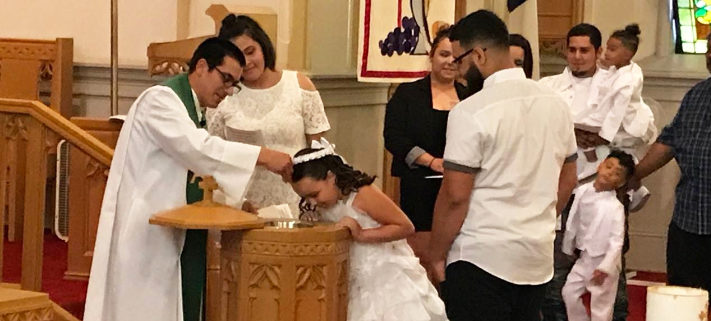Teen Talk: Thankfulness
Sometimes our “thank yous” become only words. We can become more thankful by practicing thankfulness.
Lukas Heckmann
Today many of us live in a world of many blessings. God has blessed us with education, family, friends, and faith. But how are we doing at thanking him?
I don’t mean just saying thank you, because we say thank you a lot. Think about Christmas. We receive gifts from family, friends and coworkers. Many of the gifts we receive are things we’ve wanted and feel we need, but sometimes we receive a gift that we feel we don’t need and don’t have a use for. When I get a gift like that, I say thank you, but only because I don’t want people to feel I’m ungrateful.
Is that how we treat God’s gift of Jesus? Do we thank God because it’s the nice thing to do? I know I do that a lot. During church, I frequently thank God for his blessings, but during the week I find myself doing opposite of what he told me in church. That is one of my useless “thank yous” to God. If we thank God like we thank the relative who gave us the gift we’ll never use, then God doesn’t want our thanks.
In the book of Malachi, the people of Israel were giving useless offerings or thanks to God. They, like us, said thanks to God only because it was a tradition. Here is how God responded. “ ‘Oh, that one of you would shut the temple doors, so that you would not light useless fires on my altar! I am not pleased with you,’ says the LORD Almighty, ‘and I will accept no offering from your hands’ ” (Malachi 1:10).
So how do we become better at thanking God? How do we live our lives out of thanks to God? Like everything else, it takes practice. A golfer doesn’t become a better putter by running eight miles every day, and a basketball player doesn’t become a better three-point shooter by swimming laps in the pool. These things might indirectly improve their skills, but not directly.
If you want to become a better three-point shooter, the key is repetition. Shoot a hundred threes with perfect form. The same thing goes for giving thanks to God. If you want to give God the thanks he deserves, practice—and repeat it every day. We are encouraged to “give thanks in all circumstances; for this is God’s will for you in Christ Jesus” (1 Thessalonians 5:18).
It is not that hard to find God’s blessings in your life if you take a minute to look. If you’re reading this article, you woke up in the morning. Thank God for something as simple as that. The past two years I have had the privilege to participate in an eight-miles-for-water walk, which replicates what people in Africa need to do just to get a drink of water. It involves carrying 70 pounds of water from a spring two miles away, twice a day. So next time you walk to the faucet to pour a glass of water, thank God because even something that small is a blessing from God. Thank your parents when food gets put on the table, because your parents and the food on the table are huge blessings from God.
Finally, thank God for the gift of Jesus. Let that gift help you see all the other blessings God has freely given to you. Give thanks.
Lukas Heckmann, a junior at Lakeside Lutheran High School, Lake Mills, Wisconsin, is a member at St. Andrew, Middleton, Wisconsin.
SUBMIT YOUR STORY
Do you have a manuscript, idea, or story from your own life you’d like to share for use in Forward in Christ or on wels.net? Use our online form to share it to our editorial office for consideration.
SUBSCRIBE TO FORWARD IN CHRIST
Get inspirational stories, spiritual help, and synod news from Forward in Christ every month. Print and digital subscriptions are available from Northwestern Publishing House.
Author: Lukas Heckmann
Volume 104, Number 12
Issue: December 2017
Copyrighted by WELS Forward in Christ © 2021
Forward in Christ grants permission for any original article (not a reprint) to be printed for use in a WELS church, school, or organization, provided that it is distributed free and indicate Forward in Christ as the source. Images may not be reproduced except in the context of its article. Contact us





